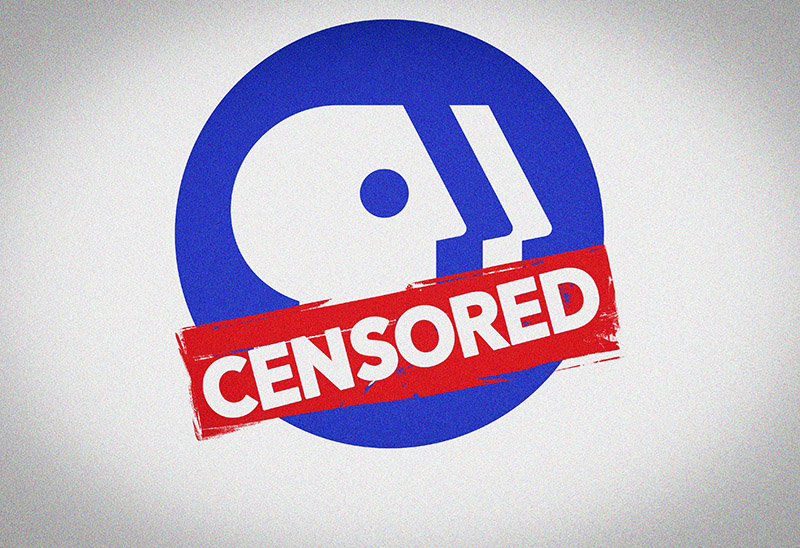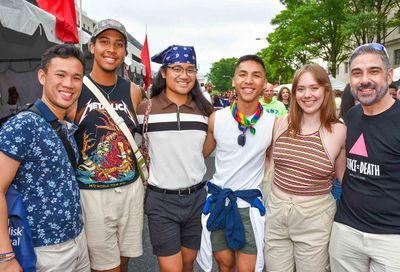Attempt to Remove San Diego Library’s LGBTQ Books Backfires
Two San Diego residents checked out books from the library's Pride Month display in an attempt to bar others from reading the books.

Two San Diego residents checked out nearly every single book in their library’s Pride Month display, claiming that such materials shouldn’t be available to children.
Across the nation, conservative groups have pushed to ban books that discuss LGBTQ issues from libraries and schools, often arguing that they are pornographic or obscene merely because they depict LGBTQ identity.
This attempt to stoke culture-war flames in San Diego backfired, according to The New York Times, ending with an outpouring of community support for the library in the form of increased monetary and book donations.
As soon as The San Diego Union-Tribune reported on the protest, new copies of the checked-out books began to arrive at the library. About 180 people, mostly from San Diego, donated $15,000 to the city’s public library system. The funds, which the city will match, will go toward LGBTQ materials and programming, including drag queen story hours.
Furthermore, the books were recently returned after the patrons who checked them out realized their scheme had backfired — this is not the future that conservatives wanted.
Adrianne Peterson, manager of the Rancho Peñasquitos branch of the San Diego Public Library, was worried when the two residents emailed her last month to say they would not return the books unless the library removed this “inappropriate content.”
“It was just kind of like, ‘Whoa, curveball,’” Peterson, who has run the library branch for more than a decade and highlighted books for Pride Month for half of that, told the Times. “I began to wonder, ‘Oh, have I been misunderstanding our community?’”
Even in Democratic-led states like California, LGBTQ events, books, and existence in general have been attacked in recent weeks and months. However, San Diegans were quick to help restore the display after Councilmember Marni von Wilpert, who represents Rancho Peñasquitos, condemned the library protest.
Rancho Peñasquitos, like many Southern California suburbs, was once solidly Republican, but has grown more diverse and in turn more liberal over the years; von Wilpert is its first Democratic councilmember. San Diego at large, too, has grown more liberal due to immigration and its booming biotech industry.
“Suburban, formerly conservative communities are still not buying into this culture war idea that we can’t have love and tolerance and acceptance,” von Wilpert, who is LGBTQ, told the Times, adding that support from her neighbors “has been amazing.”
The two protesters’ email was identical to a template posted online by the conservative group CatholicVote, which, despite its name, is not affiliated with the Church.
The group’s president, Brian Burch, said that CatholicVote does not encourage people to break the law.
But what if someone decided to keep a book indefinitely? “That’s perfectly fine,” he told the Times.
Similar stunts have been pulled in other jurisdictions, often with those removing the objectionable books claiming they are doing so to “protect children” from being exposed to age-inappropriate content or “sexualized” too early by being exposed to LGBTQ-themed literary works.
Last year, the American Library Association documented more than 1,200 demands to censor library books or materials, the highest number since the ALA began collecting this data more than 20 years ago.
Deborah Caldwell-Stone, who directs the association’s office of intellectual freedom, said that conservatives have exploited policies meant to make library books more accessible to people who cannot afford expensive fines — allowing them to keep books checked out for longer, thereby preventing others from reading those texts.
“Things intended to broaden access have been weaponized to engage in censorship,” she told the Times.
Support Metro Weekly’s Journalism
These are challenging times for news organizations. And yet it’s crucial we stay active and provide vital resources and information to both our local readers and the world. So won’t you please take a moment and consider supporting Metro Weekly with a membership? For as little as $5 a month, you can help ensure Metro Weekly magazine and MetroWeekly.com remain free, viable resources as we provide the best, most diverse, culturally-resonant LGBTQ coverage in both the D.C. region and around the world. Memberships come with exclusive perks and discounts, your own personal digital delivery of each week’s magazine (and an archive), access to our Member's Lounge when it launches this fall, and exclusive members-only items like Metro Weekly Membership Mugs and Tote Bags! Check out all our membership levels here and please join us today!

































You must be logged in to post a comment.